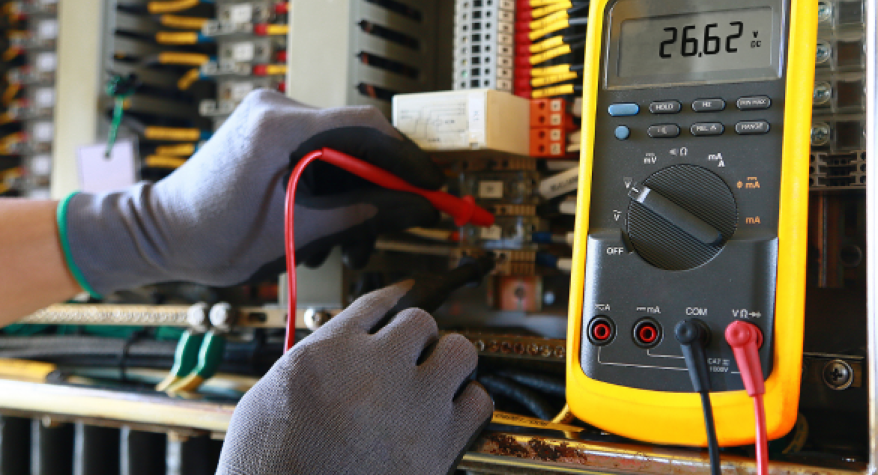An Electrical Installation Condition Report (EICR) is an electrical inspection that checks the safety and condition of electrical installations within a your home in Leeds. Here’s everything you might need to know about EICRs:
What is an EICR?
An EICR is a detailed assessment carried out by a qualified and registered electrician to check the safety, condition, and compliance of your Leeds homes electrical installation and is also used in the commercial and industrial industry.
It involves a thorough check of the electrical wiring, circuits, switches, sockets, and distribution boards to identify any potential hazards or regulation changes.
Purpose of EICRs
EICRs are performed to ensure that your homes electrical installation is safe, properly maintained, and compliant with relevant regulations, standards and safety upgrades.
They help identify any electrical faults, defects, or non-compliance issues in your homes electrical installation that may put you at risk of electric shock, fire, or other hazards, and help you identify potential faults before they happen avoiding the need for expensive call outs.
When is an EICR Required?
EICRs are typically recommended:
- Before purchasing a new property to assess the condition of the properties electrical installation, to help understand what you are buying.
- Before renting out a property to ensure compliance with safety regulations.
- As part of a regular maintenance routine to check the ongoing safety of the electrical installation.
- After a any major alteration or addition to electrical installations. Although these should be performed by the electrician and can be called EICS or MW certificates.
- For some insurance contracts, periodic EICRs may be required for certain types of properties or businesses to validate the insurance document.
EICR Process
- An EICR involves a thorough inspection and testing process carried out by a qualified and registered electrician.
- The electrician will visually inspect and remove each accessory in your home, such as switches, sockets, fuseboards etc, and checking for any potential dangers, regulation changes, deterioration and wear and tear.
- There is then a series of tests performed, usually around 3-4, on each individual circuit to check that all circuit values meet the minimum requirements.
- The findings of the inspection are documented in a detailed report, which highlights any defects, deviations from regulations, or areas of concern. These are categorised based on how dangerous the observation is.
EICR Recommendations
Based on the findings of the inspection, the EICR report may include recommendations for remedial actions to remove the dangers or upgrade to new safety features, these may be listed into categories of: - C1- Danger present, risk of injury, immediate action required, C2 – Potentially dangerous, urgent remedial action required, C3 – Improvement recommended, FI – Further investigation required without delay.
These recommendations may range from minor repairs and adjustments to more extensive upgrades or replacements of electrical accessories and safety features.
Legal Compliance and Certification
In many cases such as, landlords, property owners, and employers, they have a legal responsibility to ensure the safety of the electrical installation and the people that use them through regular EICR inspections.
Upon completion of an EICR, the electrician will issue a certificate or report detailing the inspection findings, compliance status, and any recommended actions. These actions should be completed within 30 days of receiving the certificate to validate the process.
Importance of EICRs
EICRs play a crucial role in maintaining electrical safety at your Leeds property, protecting people within the property, and reducing the risk of electrical accidents and fires.
Regular EICRs can help identify and address potential hazards before they escalate into more serious issues, saving lives and avoid expensive call outs.
Professional EICR Services
It’s essential to engage a qualified and registered electrician to carry out EICRs to ensure the work is carried out correctly and complies with relevant regulations.
You should consider scheduling regular EICR inspections as part of your property maintenance plan to maintain electrical safety standards.
By understanding the purpose and process of EICRs, property owners can prioritise electrical safety and compliance, creating a safer environment for you and your family and minimising the risk of electrical hazards.
If you have any further questions or require a professional to carry out an EICR, don’t hesitate to contact our team of qualified electricians here at Duravault, Leeds. We’re here to help ensure the safety and standards of you’re the electrical installation of your home in Leeds.



